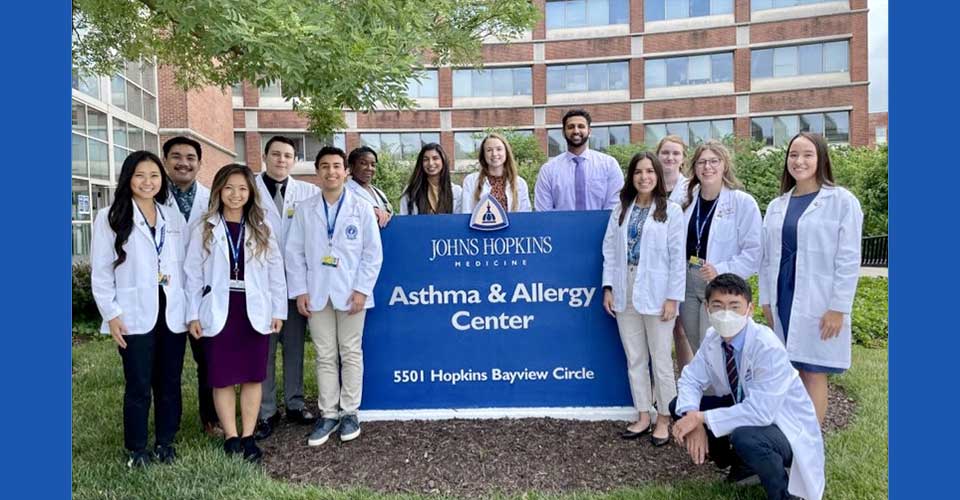Over the summer, I had the privilege of participating in the Medical Student Training in Aging Research (MSTAR) program at the Johns Hopkins University School of Medicine. MSTAR is a geriatrics research elective program for 100 scholars held at eight different medical universities throughout the country. I am thankful to have been selected to attend this program at the Johns Hopkins location. The experience offered me plenty of opportunities to progress my future career, as well as how to be more open-minded, think critically and become a competent clinical researcher.
My experience with geriatric medicine faculty members has taught me how to tackle certain health-related issues, such as the complexities of polypharmacy, considering the Beers criteria when prescribing medications to older adults, taking into consideration the 5 “M’s” of geriatrics when encountering older adults in practice, and much more. I also learned to appreciate the importance and application of geriatrics into different fields of medicine such as emergency medicine or ophthalmology through other physician specialists. In addition, I was able to explore the Baltimore-D.C. metropolitan area with peers from across the country. Overall, it is difficult to ask for an opportunity as rewarding and exciting as participating in MSTAR.
While I am not sure exactly what specialty I want to pursue at the moment, there was great value in immersing myself in geriatrics due to our aging population. We will all be taking care of increasingly older patients as future physicians (unless we pursue pediatrics).
Taking part in this program does not mean you are sacrificing your summer break. The program integrates several fun activities for MSTAR peers to mingle and participate in throughout the summer. In addition, forming new friendships in a new city is always exciting as it offers the opportunity to explore the area and create long-lasting relationships.
Tips for Future Applicants
As an MSTAR scholar, I recommend future students to seriously consider applying to this great program. There is a phrase that faculty repeatedly emphasized— “once an MSTAR, always an MSTAR.” To support this philosophy, faculty introduced us to someone who had participated in MSTAR herself several years ago as a medical student. Now, she is a geriatrics fellow at Hopkins. Upon completion of the program, you will continue to reap rewards through the many wonderful connections with faculty, staff and MSTAR peers. Furthermore, the following year you will have the opportunity to present your research abstract poster at the Annual Meeting of the American Geriatrics Society— allowing students the opportunity to share their scholarly work, reconnect with peers, meet physicians from all over and develop their presentation skills. I plan to submit an abstract for the next meeting and hope to attend.
Future students seriously considering this program should not fear if they lack any research experience. The Hopkins faculty are wonderful and will teach you how to become a competent researcher step-by-step, thus preparing you for any future research endeavors. All types or topics of research are welcome as well, as long as it pertains to aging or geriatrics. Our group had projects ranging from lab benchwork to human clinical trials on topics as far reaching as frailty and fragility in orthopedic patients to geriatric psychology and neurology.
It is important to be proactive during the application process and not wait to apply at the last minute. You want to have adequate time to assemble your application components and type your personal statement. Lastly, personal statements should be tailored to each location you are applying to. Reach out to NEOMED faculty for help or advice during the application process!
-- submitted by Omar Nusair, second-year medicine student
Students interested in exploring future MSTAR opportunities should contact Marquita Belen, M.D., FAAFP, associate professor of family and community medicine and director of geriatrics, at mbelen@neomed.edu.
